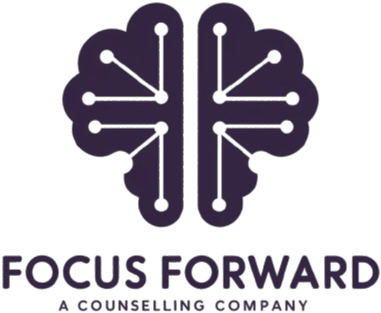10 Signs You and Your Partner Need Couples Counseling

Couples counseling is a valuable resource for partners facing difficulties in their relationship. It provides a safe space for both individuals to explore their issues with the guidance of a trained therapist. Effective counseling can lead to improved communication, renewed intimacy, and a deeper understanding of each other’s needs. Recognizing the signs that indicate when counseling might be necessary is crucial for addressing problems before they escalate. In this article, we’ll explore ten key signs that suggest you and your partner may benefit from couples counseling.
1. Frequent and Intense Arguments
How Arguments Indicate Deeper Issues
Frequent and intense arguments are often more than just disagreements—they can be symptoms of underlying issues. When arguments become a regular occurrence, they can erode the foundation of a relationship. Disagreements about everyday matters can sometimes mask deeper problems, such as unmet needs, unresolved conflicts, or differing values and expectations.
Examples of Common Argument Topics
- Financial issues: Disputes over spending, saving, or financial priorities.
- Household responsibilities: Conflicts about chores, duties, and division of labor.
- Parenting: Disagreements on child-rearing practices and discipline.
Addressing these underlying issues through counseling can help partners communicate more effectively and resolve conflicts in a healthier way.
2. Communication Breakdown
Signs of Poor Communication
Effective communication is the cornerstone of a healthy relationship. Signs of poor communication include:
- Frequent misunderstandings and misinterpretations.
- Avoidance of important conversations.
- Lack of active listening or empathy.
How to Recognize Ineffective Communication Patterns
Ineffective communication often involves speaking over one another, dismissing each other’s feelings, or using negative language. For example, saying “You always” or “You never” can escalate conflicts and create a sense of frustration. Counseling can help couples develop better communication skills, learn to listen actively, and express themselves more constructively.
3. Emotional Distance

Indicators of Emotional Disconnection
Emotional distance in a relationship can manifest as a lack of affection, decreased interest in each other’s lives, or a feeling of being emotionally unsupported. Partners may feel isolated even when they are physically together.
The Impact of Emotional Distance on Relationships
Emotional distance can lead to feelings of loneliness and dissatisfaction. It often signals that partners are not meeting each other’s emotional needs, which can weaken the bond between them. Counseling can help partners reconnect emotionally and rebuild their sense of closeness and intimacy.
4. Lack of Intimacy
Understanding the Importance of Physical and Emotional Intimacy
Intimacy encompasses both physical and emotional connections. A lack of intimacy may involve a decline in sexual activity, affection, or emotional sharing. Intimacy is crucial for maintaining a strong, healthy relationship.
Signs of Declining Intimacy
- Reduced frequency of physical affection or sexual activity.
- Avoidance of emotional sharing or personal conversations.
- A sense of detachment or coldness from your partner.
Counseling can address issues related to intimacy by exploring underlying causes and helping partners rekindle their connection.
5. Persistent Resentment
How Unresolved Issues Lead to Resentment
Resentment often builds up when issues are left unresolved. Over time, small grievances can accumulate, leading to a sense of bitterness and frustration. This can strain the relationship and create barriers to effective communication and connection.
Strategies to Address and Resolve Resentment
Addressing resentment involves acknowledging the issues that have led to these feelings and working through them together. Counseling can provide tools and techniques for expressing feelings, making amends, and rebuilding trust.
6. Unresolved Conflict
Examples of Ongoing Conflicts
Ongoing conflicts can be indicative of deeper problems that have not been addressed. Examples include:
- Disputes about lifestyle choices or future plans.
- Repeated arguments about the same topics without resolution.
- Conflicts that persist despite attempts to resolve them.
The Effects of Unresolved Issues on a Relationship
Unresolved conflicts can erode trust and create a hostile environment. They often lead to emotional distance and dissatisfaction. Counseling can help couples navigate these conflicts, develop problem-solving skills, and find common ground.
7. Constant Criticism
How Criticism Affects Relationship Dynamics
Constant criticism can undermine a partner’s self-esteem and create a negative atmosphere in the relationship. It involves focusing on each other’s flaws rather than appreciating positive qualities. This can lead to feelings of resentment and defensiveness.
Differentiating Between Constructive Feedback and Criticism
Constructive feedback is aimed at improvement and is delivered with empathy and respect. Criticism, on the other hand, is often harsh and personal. Counseling can help partners learn to provide constructive feedback and address issues without resorting to criticism.
8. Avoidance of Important Topics
Recognizing Avoidance Behaviors
Avoidance involves steering clear of important discussions or issues that need to be addressed. This can include avoiding conversations about future plans, finances, or feelings. Avoidance can prevent couples from resolving critical issues and can lead to misunderstandings and resentment.
The Role of Avoiding Topics in Relationship Problems
Avoiding important topics can create a false sense of peace while underlying issues fester. Counseling can help partners confront these topics in a safe and supportive environment, fostering open communication and problem-solving.
9. Feeling Unappreciated
Signs That Partners Feel Undervalued
Feeling unappreciated can manifest as a lack of recognition for efforts and contributions, neglecting emotional needs, or taking each other for granted. It can lead to feelings of frustration and disconnection.
The Importance of Appreciation in Relationships
Appreciation is crucial for maintaining a positive and fulfilling relationship. It reinforces the value of each partner and fosters a sense of mutual respect and gratitude. Counseling can help partners recognize and express appreciation more effectively.
10. Major Life Changes or Stressors
How Significant Life Events Impact Relationships
Major life changes, such as the birth of a child, job loss, or moving to a new city, can put significant stress on a relationship. These events often bring additional pressures and can exacerbate existing issues.
Addressing Stress and Change with Counseling
Counseling can provide support during times of transition by helping couples navigate changes together, manage stress, and strengthen their relationship. It can also offer strategies for maintaining connection and intimacy amidst life’s challenges.
Conclusion
Recognizing the signs that indicate a need for couples counseling is the first step towards addressing and resolving relationship issues. Whether you’re experiencing frequent arguments, communication breakdowns, or emotional distance, seeking counseling can provide valuable support and guidance. By addressing these issues proactively, you and your partner can work towards a healthier, more fulfilling relationship.
Call to Action
If you and your partner are experiencing any of these signs, consider reaching out to a couples counselor. Finding a qualified therapist can help you both navigate your challenges and strengthen your relationship. Taking the first step towards counseling can lead to meaningful improvements and a renewed sense of connection.
(Focus Forward Counselling is located at 32615 South Fraser Way, Abbotsford, V2T 1X8)






